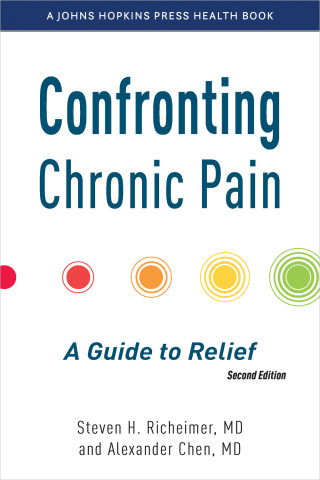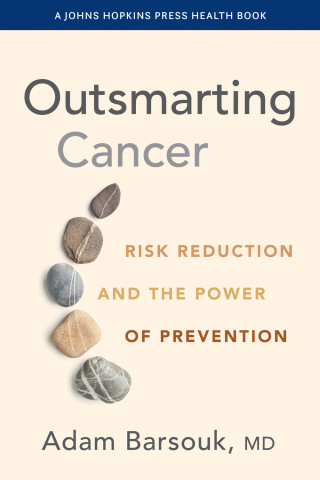
Reviews
A strongly recommended reference that belongs in every community library health collection.
This informative, well-written resource will help students and nurses understand the essentials of anaesthetic procedures.
This easy-to-understand book clearly explains medical terms, risks and benefits, side effects and complications. Patients who read this book will find answers to their questions and will feel less vulnerable and anxious about anesthesia. I also recommend this book as a valuable resource for medical students and interns in anesthesia clerkships.
Book Details
1. Introduction to Anesthesia and Surgery
What is anesthesia?
Who is my anesthesiologist?
How will I be prepared for anesthesia?
What are the different techniques of anesthesia?
What is recovery from
1. Introduction to Anesthesia and Surgery
What is anesthesia?
Who is my anesthesiologist?
How will I be prepared for anesthesia?
What are the different techniques of anesthesia?
What is recovery from anesthesia like?
2. A Brief History of Anesthesia
How long has anesthesia been available?
What was surgery like before anesthesia?
How did the discovery of anesthesia influence surgery?
Who is credited with the first uses of surgical anesthesia?
How did general anesthesia and regional anesthesia come into common use at the same time?
3. General Anesthesia
What does general anesthesia entail?
How is general anesthesia different from sedation?
What can I expect before surgery with general anesthesia?
Why do I need an IV (intravenous cannula) for an anesthetic?
What is the purpose of all those monitors?
What happens to patients' breathing under general anesthesia?
How will my anesthesiologist keep me safe under anesthesia?
What are the most common side effects of general anesthesia?
4. Complications, Risk Assessment, and Safety
How do physicians assess patient risk before anesthesia and surgery?
Who is at the highest risk for complications during general anesthesia?
How has safety in anesthesia evolved in recent years?
What are the most common complications of general anesthesia?
How often do these complications occur?
How can I be protected from such complications?
What happens when controlling the airway is difficult during anesthesia?
What causes the most complications in the operating room?
5. Regional Anesthesia
Why is it called regional anesthesia?
How do local anesthetics work?
What are the different types of regional anesthesia?
Will I be in less pain after surgery with regional anesthesia than with medications alone?
What is the difference between regional anesthesia and general anesthesia?
Can regional and general anesthesia complement one another?
How will my outcome be different after regional and general anesthesia?
6. Spinal Anesthesia and Epidural Anesthesia
What is neuraxial regional anesthesia and how is it performed?
What is spinal anesthesia?
What is epidural anesthesia?
When is a spinal anesthetic useful?
How is epidural different from spinal anesthesia?
How does my anesthesiologist know where to put an epidural in my spine?
When is a continuous epidural useful?
What are the most common side effects of neuraxial regional anesthetics?
7. Peripheral Nerve Blocks
What is a peripheral nerve?
Where are peripheral nerve blocks placed?
Which placement method is best?
What will I experience when getting a peripheral nerve block?
Can peripheral blocks be combined with other types of anesthesia?
What are the advantages of peripheral blocks for surgery and pain control?
Is a peripheral nerve block sufficient for anesthesia before surgery?
How are peripheral blocks different from neuraxial blocks?
Do peripheral nerve blocks have side effects?
How long do peripheral nerve blocks last?
8. Complications of Regional Anesthesia
What are the most common complications of regional anesthesia?
What happens if the needle hits a blood vessel during a nerve block?
What are the risks associated with blood thinners and nerve blocks?
Can the site of a nerve block become infected?
How common are nerve injuries during nerve block procedures?
Are they permanent?
What are the symptoms of a nerve injury from a nerve block?
What happens if I have a reaction to the local anesthetic?
How do anesthesiologists avoid patient reactions to local anesthetic?
9. Regional Anesthesia for Special Populations
Why do anesthesiologists usually place regional anesthetic blocks in children only after general anesthesia has been initiated?
Are nerve blocks safe to use in children under general anesthesia?
How can regional blocks benefit children who are undergoing surgery?
How has ultrasound affected the practice of pediatric regional anesthesia?
What are the risks of using general anesthesia during labor and delivery?
What are the benefits of using spinal or epidural blocks during labor and delivery?
Why is the epidural block the preferred anesthetic for women in labor?
How do epidural blocks affect labor, delivery, and the likelihood of a cesarean section?
What other regional anesthesia methods are sometimes used in labor and delivery?
Why does general anesthesia pose special risks to people with obstructive sleep apnea?
What are the disadvantages of opioid pain medications for patients with sleep apnea?
What are the benefits of regional anesthesia for patients with sleep apnea who undergo surgery?
What is the impact of general anesthesia and opioid pain medications on brain function in the elderly?
Can the use of regional blocks in the elderly lead to an improvement in postoperative complication rates?
10. Pain Therapy
How is pain defined?
What are the different types of pain?
How does the nervous system receive and process painful stimuli?
How is pain measured?
How can physicians treat acute pain after surgery?
What are the advantages of a multimodal approach to pain management?
Does early treatment of surgical pain reduce the likelihood of chronic pain at the surgery site?
How is an effective pain management service run in a hospital or practice?
What can be done if pain management is inadequate?
References and Suggested Reading
Index





